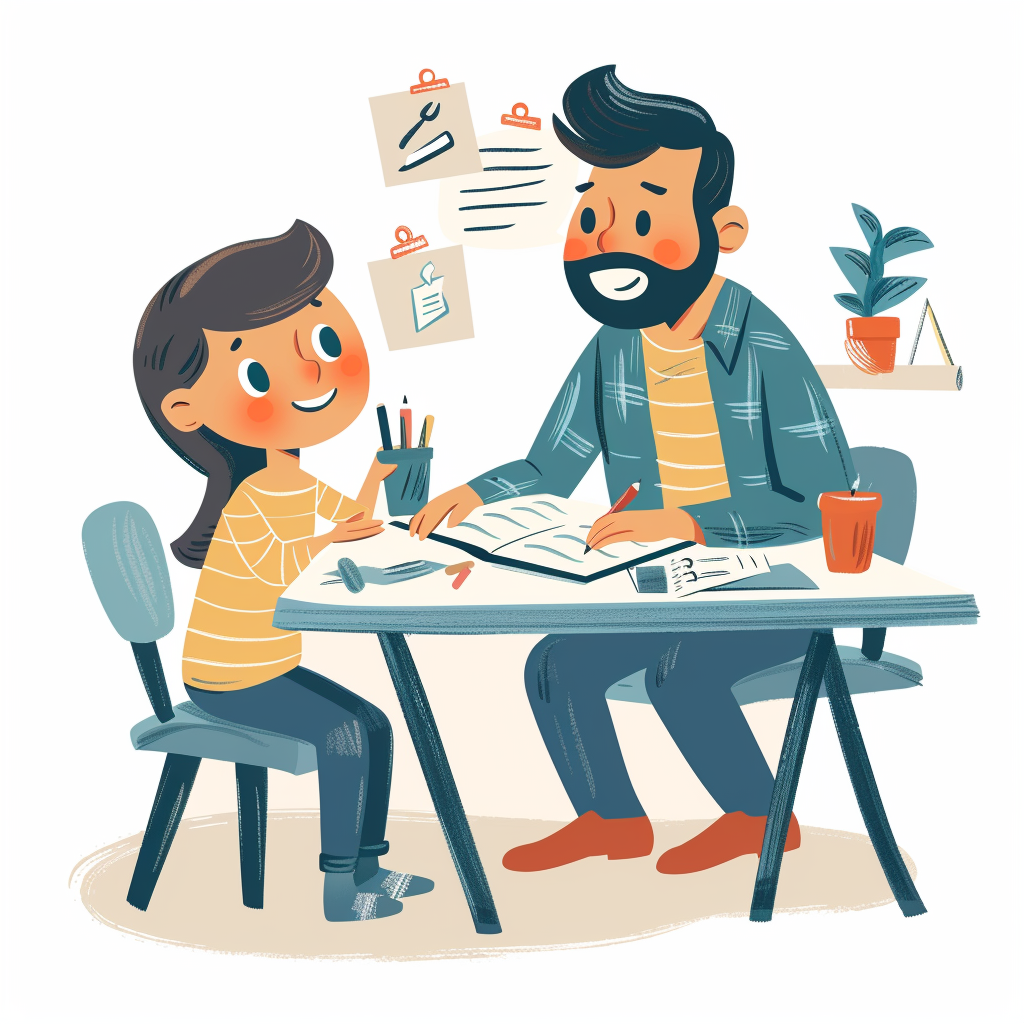Free Maths Worksheet - Partitioning Numbers (Hundreds, Tens and Units)
Let your child take charge of their learning
Access print-friendly, downloadable Maths and English resources for easy learning.
Our aim is to help children succeed at school. Supporting children in Maths and English can be made easier if you have the right resources.
Choose from our many plans or try us for free with Teach Weekly.


What is Partitioning Numbers?
Teaching children to partition numbers is part of the Maths Primary National Curriculum.
KS1 and KS2 children who can partition numbers will be able to add, subtract, multiply and divide numbers more easily. They will be able to work out maths problems using mental methods and written methods.
Partitioning a number is a concept commonly taught to children in schools to help them understand how a number can be broken down into smaller parts or components. This concept is fundamental for developing number sense and arithmetic skills.
Partitioning a number basically means splitting it up, so that the value of each digit is identified. It helps children understand place value, particularly useful when they begin to use larger numbers.
Partitioning a number involves looking at each digit in the number e.g. is it in the units, tens, hundreds, thousands column etc. This can be explained to children using an abacus, cubes (e.g. tens sticks) or by an using addition sum.
How To Partition A Number
Here are some examples of how numbers can be partitioned:
- 31 = 30 + 1
- 45 = 40 + 5
- 106 = 100 + 6
- 325 = 300 + 20 + 5
- 4367 = 4000 + 300 + 60 + 7
- 6.9 = 6 + 0.9
As you can see from above, each value of each digit is identified.
Partitioning Example
Imagine you have a number, let's say 15. To partition this number means to break it down into smaller parts or components. Children typically learn different ways to express a number by adding or combining smaller numbers.
For example, to partition 15:
- Basic Addition:
- 15 can be partitioned into 10 + 5.
- So, instead of thinking about 15 as one whole, you can think of it as 10 plus 5.
- Place Value Partitioning:
- 15 can also be partitioned into 10 + 5 by recognising the place value. The "1" in 15 represents 10, and the "5" represents 5 units.
- Number Bonds:
- Another way to partition 15 is by using number bonds. In this case, you might think of 15 as the sum of 10 and 5 or 8 and 7, for example.
Once children are familiar with the idea that each digit in a number has a particular value, that understanding can then be built on. As children develop their maths skills, they can use the concept of partitioning numbers to add, subtract, multiply and divide larger numbers. This is then built on further to help children develop their maths skills using more formal, written methods of adding etc.
It's a way of breaking down a number into smaller, more manageable parts to make mathematical thinking and problem-solving easier and more accessible.
Free Maths Worksheets - Partitioning Numbers
Click on the download link at the bottom of this page for a free Teach My Kids maths partitioning numbers worksheet.
This worksheet can be used by children to practise and reinforce partitioning three digit numbers.
It includes partitioning and finding the value of:
- hundreds, tens and units
Want More Maths and English Worksheets? Need extra homework Help?
Join Teach My Kids for targeted Maths Worksheets for Primary School Children
Browse Maths and English Worksheets for your child's year group
You Might Also Like To Read:
Place Value Cards for making numbers and partitioning
How To Add And Subtract - KS1/KS2 Quick Guide, Methods Used In Primary Schools
How Do They Teach Addition At School? (F2 / Yr 1)
Maths - Number Bonds to 10 Worksheet
How To Get Children To Learn, Without Lifting A Finger!
Teach KS2 Children Division - What Is The ‘Chunking’ Method?
How Many More? KS1 Maths, Counting On Worksheet
Buy TMKed Maths Workbooks for Children Aged 4-11 Years Old Aimed at helping children develop and focus on particular skills in Maths.
Download Partitioning Numbers (Hundreds, Tens and Units) Worksheet

Don't take our word for it...
"Amazing site just renewed my subscription for the second year. This site is well structured and has helped to assure me that the work we do at home co-ordinates and strengthens the work done at school."
"Teach My Kids is a fantastic resource. We use the work sheets to reinforce the Maths and English that our children, James 9 and Katie 8, are learning at school. They are ideal for when we have a spare 10 – 15 minutes, and also give us as parents the opportunity to see how much our kids know!
As and when the work sheets are completed, I log in and tick them as completed, so it’s clear which topics have been covered. I try to do 2 - 4 of worksheets a week and feel that they are of great benefit to both our children.
I would definitely recommend ‘Teach My Kids’, it’s fantastic value for money and if you have any questions or queries these are answered promptly."
"I have found the ‘Teach my Kids’ website to be very helpful and informative. The worksheets met my children’s individual needs at a time when I was struggling with ways in which to support them. They were very easy to follow have made a real impact on their confidence in Maths and English.
The website is clear and well thought out and easy for anyone to follow. Any queries are responded to promptly. A great website for parents!"
"Teach My Kids has all the ingredients of the National Curriculum and above all good lesson planning. Such an excellent tool for parents and children. The worksheets are attractive and easy to read and follow. Excellent lively illustrations. I am impressed by the rewards systems and learning path progress. The learning paths are well constructed and brilliant because all the children in the family can use it. Very useful advice to parents.
I would encouraged parents towards this user friendly and excellent web site."
"Teach my kids is a very valuable website! Great worksheets available that help me and my child on her sometimes confusing learning path. Fabulous helpful and friendly owners, would highly recommend!"
"I have been with Teach My Kids for a few months and can see an improvement in my daughter. The rewards have helped her stay focused."




